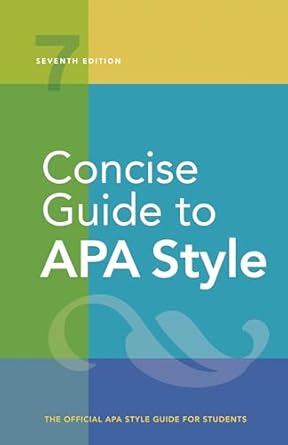[toc]
mastering grammar avoid misplaced modifiers for clarity
Concise Guide to APA Style: 7th Edition (OFFICIAL)
Page 73 Review
Grammar and Usage: A Deep Dive into Clarity
Effective writing hinges on precision.
Ambiguity can derail understanding and frustrate readers.
This excerpt from an ebook on grammar and usage highlights the crucial role of modifiers and their placement in sentences.
Let’s explore the concepts of precise language and misplaced modifiers with insights from the text.
Precise vs.
Imprecise Language
The text begins by contrasting a precise and an imprecise sentence:
“Precise: Participants were leaving because the light turned green.”
“Imprecise: Participants were leaving since the light turned green.”
While seemingly similar, ‘because’ establishes a direct cause-and-effect relationship, while ‘since’ can also indicate a time relationship.
The slight difference can alter the reader’s perception.
Choosing the most accurate word or phrase is key to achieving clarity.
The Perils of Misplaced and Dangling Modifiers
The ebook then dives into the more complex territory of misplaced and dangling modifiers.
It correctly points out:
“An adjective or an adverb, whether a single word or a phrase, must clearly refer to the word that it modifies.
Having modifiers without clear referents can make it hard for readers to follow the logic of your sentence.”
A modifier’s purpose is to provide additional information about another element in the sentence.
If it’s positioned poorly, it can create confusion and unintended meanings.
Misplaced Modifiers: Ambiguity in Placement
Misplaced modifiers, as the name suggests, are words or phrases located in a sentence in a way that their connection to the word they modify becomes unclear.
“Because of their placement in a sentence, misplaced modifiers ambiguously or illogically modify a word.
Eliminate misplaced modifiers by placing an adjective or an adverb as close as possible to the word it modifies.”
The text offers a clear example:
Incorrect: Using this procedure, the investigator tested the participants.
Correct:
- The investigator tested the participants who were using the procedure.
- The investigator tested the participants using this procedure.
The text explains the rationale behind the correction:
“The incorrect sentence is unclear about whether the investigator or the participants used this procedure.”
By repositioning the phrase “using this procedure,” the corrected sentences clarify who is using the procedure.
The first revision specifies that it was the participants and the second highlights that the investigator used the procedure while testing.
The Case of ‘Only’
The ebook also addresses the common pitfall of misplacing the word ‘only’:
“Many writers misplace the word “only.” Place “only” next to the word or phrase it modifies.”
For example:
Incorrect: These data are only a partial answer.
By moving ‘only’ closer to the word it modifies (in this case, ‘partial’), the sentence becomes clearer.
Squinting Modifiers: A Difficult Case
Finally, the text introduces the tricky concept of squinting modifiers:
“Squinting modifiers are a type of misplaced modifier.
Because of their ambiguous placement, they make it difficult to tell whether the modifier refers to the phrase before or after the modifier.”
Consider the example provided:
Incorrect: My comprehension is improved when I read slowly.
Correct:
- My comprehension is improved when I read slowly.
- Reading books slowly improves my comprehension.
The rationale clearly spells out the issue:
“It is unclear whether the reading or the improvement is slow.”
Squinting modifiers require careful attention and rewriting to remove the ambiguity.
Conclusion
This excerpt underscores the importance of precise language and the potential pitfalls of misplaced and squinting modifiers.
By understanding these concepts and diligently applying them, writers can significantly improve the clarity and effectiveness of their communication.
The key takeaway is to always ensure that modifiers are placed as close as possible to the words they modify, leaving no room for misinterpretation.
Buy full ebook for only $18: https://www.lulu.com/shop/american-psychological-association/concise-guide-to-apa-style-7th-edition-official/ebook/product-rmzpq54.html?page=1&pageSize=4
Mastering Grammar Avoid Misplaced Modifiers For Clarity
Read more: Mastering Reference Lists: A Quick Guide


Leave a Reply